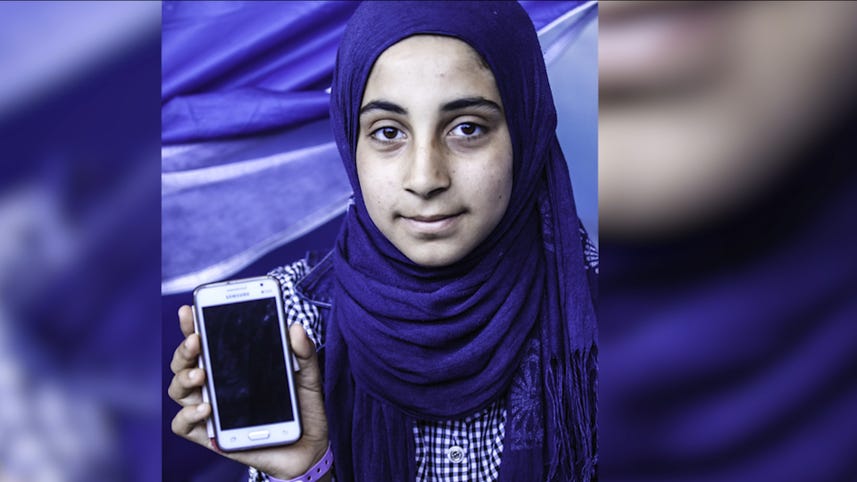
[MUSIC]
So we're in an unofficial refugee camp under an overpass.
In Athens.
In Athens in the port.
So there's like tourists come through right back over there.
It's obviously juxtaposition of an operational port and unofficial Refugee camp.
The bulk of the people had moved from the island of Lesbos to Athens.
And so the camps that we saw there, much more urban, many more people, you know, in many different locations throughout the city.
I would say almost everybody, if not everybody that wasn't a child had a smartphone.
Usually when they arrive in Greece they will get local SIM cards.
Buying phones to buying chargers.
Most of the time it wasn't an official charging station.
It was just kind of, here's an outlet and the refugees have hooked up You know, five power strips to it.
[MUSIC]
[INAUDIBLE]
It's Friday, we're on our way to Illenicone which is the old international airport that's shutdown that's now turned into, what we understand, an official unofficial place for refugees.
This one is controlled by the Greek government, but it was
Very strange, very surreal there's arrival and departure signs and there's baggage claim.
Their day to day life I mean as far as the technology and the way they kind of they do a lot of what we do, what everyone around the world does is kind of When you're bored, you sit around, and you're on your phone.
They're on Facebook, they're exchanging information via Facebook and WhatsApp and kind of keeping in touch with other people's, other friend's movements, which sometimes can happen very quickly.
Is there like a Facebook page that you track, or is there online?
How would you Do you know if the boarders are open?
[FOREIGN]
These refugees knew that if they broke, it would be very difficult to replace them and they were such an important element in their lives to make sure that they some sort of connection to
Other people and the world around them.
[MUSIC]
There are a lot of people in the official camps, but there's also a lot of people who are just kind of squatting at different places in the city.
We found network
Squats all over Athens.
There were more than a dozen different squats that were basically unused and abandoned buildings that had been taken over by different groups that then were able to house refugees.
And a lot of them actually had Facebook groups or Twitter handles, partly because those squats are illegal.
And so They knew that to use those different types of social media networks to get out the message.
You went to this hotel for refugees.
And it's an abandoned hotel called City Plaza.
They cook everything.
They have clean sheets in their rooms.
And they are in hotel rooms that look similar to this one.
I think this is the most The striking thing was that these people were probably the nicest people that I've met ever.
We did end up being able to talk a lot to the actual refugees who were all extremely kind and friendly and open and willing to talk to us.
They were just kind of left in limbo.
Living in tents with minimal resources, and no way to kind of change their own situation.
So we came to Greece to report on technology, and its role in all of this, but after this trip, it's clear to me that tech is really only a means to an end.
So really, it's all about People.
[MUSIC]